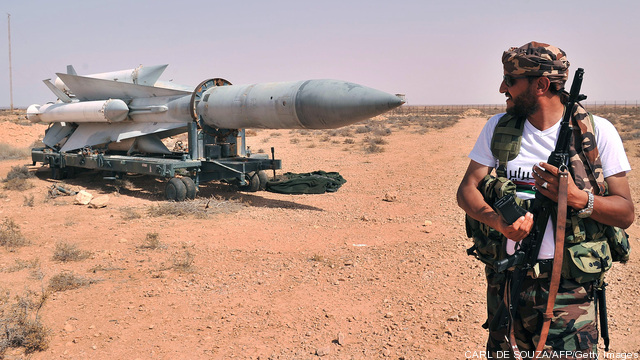U.S. Should Help Secure Libyan WMD, House Intel Chief Says
Posted on
 Washington: The United States must help secure caches of Libyan military hardware, including chemical and biological weapons, so they do not fall into terrorist hands, the head of the House intelligence committee said today.
Washington: The United States must help secure caches of Libyan military hardware, including chemical and biological weapons, so they do not fall into terrorist hands, the head of the House intelligence committee said today.
“There are things that should still be done” by American forces in Libya, despite the fact that the U.S. handed over control of the UN-mandated peacekeeping mission to NATO months ago, said Rep. Mike Rogers, chairman of the House Permanent Select Committee on Intelligence.
Although Rogers didn’t offer many specifics, that U.S. effort would focused on securing weapons stockpiles that had been under the control of former Libyan ruler Muammar Qaddafi, Rogers said during a speech at the conservative American Enterprise Institute today.
The crux of Rogers’ plan would depend on “small teams of people” with “special capabilities” tasked with finding and securing those weapons, committee spokeswoman Susan Phalen said.
The size of these security teams and scope of their mission would allow the U.S. to secure those weapons stashes while not increasing the American presence in Libya, she added.
The issue of missing or unaccounted for weapons in Libya — especially chemical and biological ones — and their being captured by Al Qaeda or other extremist groups has many in the military and intelligence community worried.
A number of advanced shoulder-fired surface-to-air missiles have already been looted from Libyan stockpiles, according to recent news reports.
Earlier this week, Africa Command chief Gen. Carter Ham, who oversaw the U.S. mission in Libya, said there is a “great, great concern about the security of that [chemical and biological] material” floating around in the North African country.
Most of that material in question “is not weaponized [and] it’s not easily weaponized, but nonetheless we want to make sure,” that the situation does not get to that point, Ham said.
White House counterterrorism czar John Brennan said earlier this month that administration officials “are working very closely” with the transitional government in Libya on the issue. but said
On the possibility of Al Qaeda getting those weapons or materials, Brennan pointed out that much of the group’s senior leadership was Libyan and there were “lots of concerns” about those weapons since control of the country remains in flux.
Despite the challenges in Libya and other hot spots across the globe, the U.S. cannot afford to “walk away from the rest of the world.”
Even after more than 10 years of war in Iraq and Afghanistan, America “can’t be a passive player” on the international scene, he said.
DoD and their civilian counterparts in the government must continue to press partnerships with foreign countries in places like the Pacific and the Middle East, according to Rogers.
“America must be trusted by the rest of the world,” he said, adding that ignoring potential threats to U.S. national security “won’t make them go away.”
Subscribe to our newsletter
Promotions, new products and sales. Directly to your inbox.
